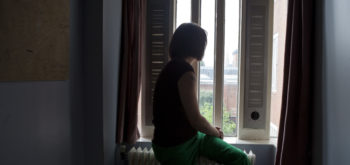Victims of domestic abuse should not be denied legal aid because they have ‘trapped capital’ in homes which cannot be sold or borrowed against, the High Court has ruled. As a result, the Legal Aid Agency (LAA) now has discretion over whether legal aid should be granted to survivors of domestic abuse where they have ‘trapped capital.’
Mr Justice Pepperall concluded that a domestic abuse survivor who only had £28 in the bank, following the breakdown of her relationship, should not have been refused legal aid for a child custody case. Without legal aid, the claimant faces the prospect of confronting the perpetrator in court without the help of a lawyer and representation.
Despite much criticised provisions under the Legal Aid Sentencing and Punishment of Offenders Act 2013 to ensure that domestic violence survivors could access legal aid, many survivors were unable to access legal aid due to the LAA’s strict interpretation of its rules.
The statistics highlight the importance of access to justice in these types of cases; two women are killed each week by a current or former partner and 500 recent victims of domestic violence commit suicide every year. Research conducted by Victim Support found that victims of domestic abuse have been encouraged by the police to take civil actions rather than criminal prosecution especially because of the criminal court backlog of over 50,000 serious criminal cases in light of the pandemic.
Olive Craig, of the legal charity Rights of Women, told the Guardian: ‘We frequently speak to women who cannot afford to pay for legal advice but are considered to be financially ineligible for legal aid. We hear from victims of abuse who are having to resort to food banks to feed their children but are assessed as financially ineligible for legal aid.’
Daniel Rourke, a lawyer at Public Law Project, said that ‘no one should face an abusive former partner in the family court alone because they cannot afford legal representation’. ‘The LAA will have to carefully consider whether it is appropriate to include the value of their homes when considering their applications for legal aid,’ he added.
A survey from the Rights of Women highlighted is a concern that some victims of domestic violence will simply not pursue legal action if they are unable to access legal aid. Molly Ashcroft of the law firm Beck Fitzgerald explained her firm’s experience of the issue: The claimant’s situation is not unusual or unique. ‘On average, we cannot assist 1-2 clients per week in securing legal aid as the equity in the property they live in is considered by the Legal Aid Agency as an asset which they can access,’ she said. ‘This is irrespective of whether the property is occupied by the client and their children, thus providing a home and irrespective of whether the property is jointly owned by the client and the perpetrator of abuse.’
David Greene, president of the Law Society of England and Wales, said that there was ‘a clear injustice in denying victims of domestic abuse legal aid on the grounds of property they co-own with their abuser’. ‘Today’s judgment provides important clarification for victims of domestic abuse and we hope it will give more people confidence that they can secure the legal support they need to leave an abusive relationship and deal with the consequences.’






